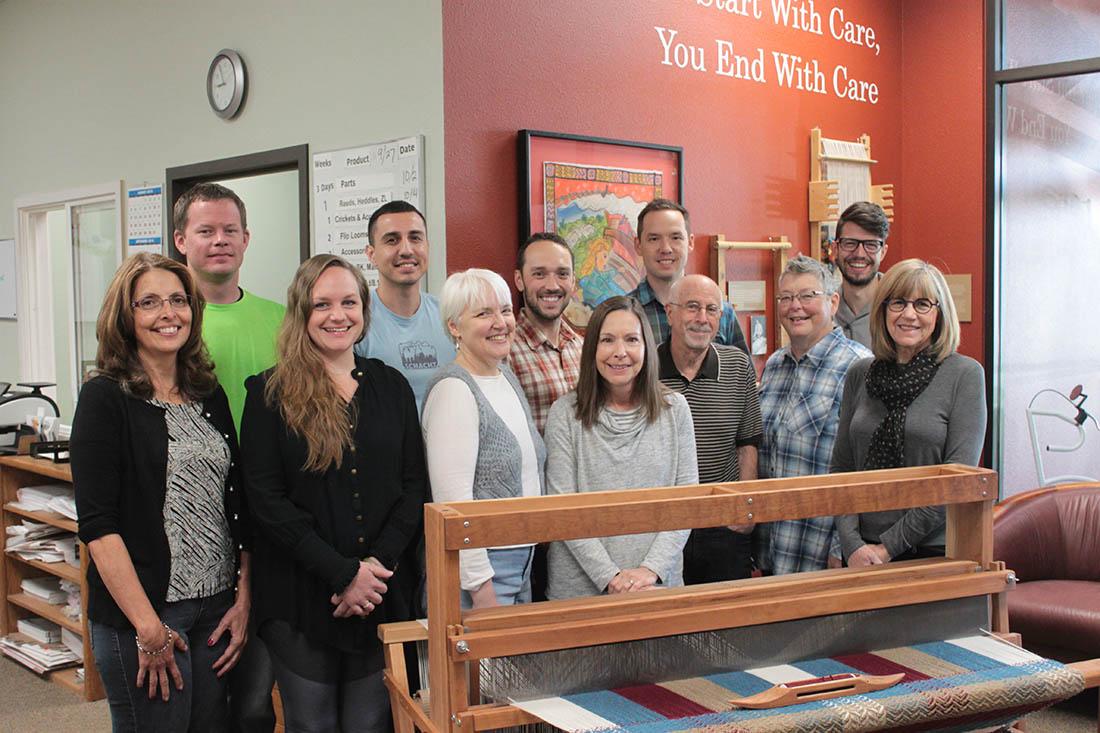
The Schacht sales and marketing team with founders Barry and Jane Schacht.
Photos courtesy of Schacht Spindle Company
As the hippie-esque story goes, in 1969, Barry Schacht arrived in Boulder, Colorado, in a van that had become his home. After getting fired from his job maintaining the grounds at University of Colorado for mowing a peace sign into one of the lawns, he crafted a spindle for his brother’s girlfriend, who wanted to learn how to spin and weave.
The brothers and their friends (and their dogs) then traveled to Greentree Ranch in Loveland, Colorado, where they learned all about the art of the drop spindle – and received their first commission.
They then moved on to making portable tapestry looms and started teaching weaving classes at the Boulder and Denver Free Schools, selling looms to their students.
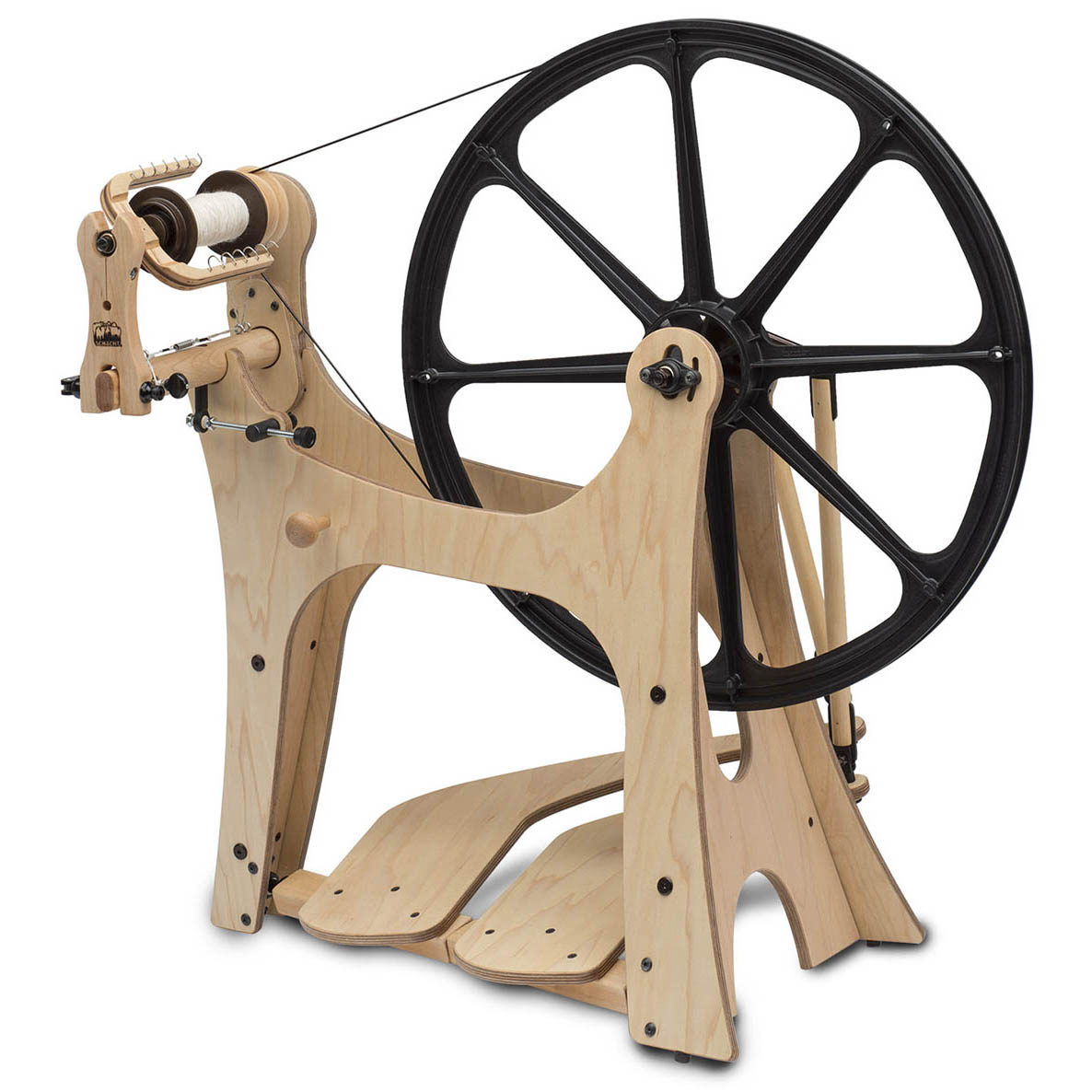
Flatiron Wheel.
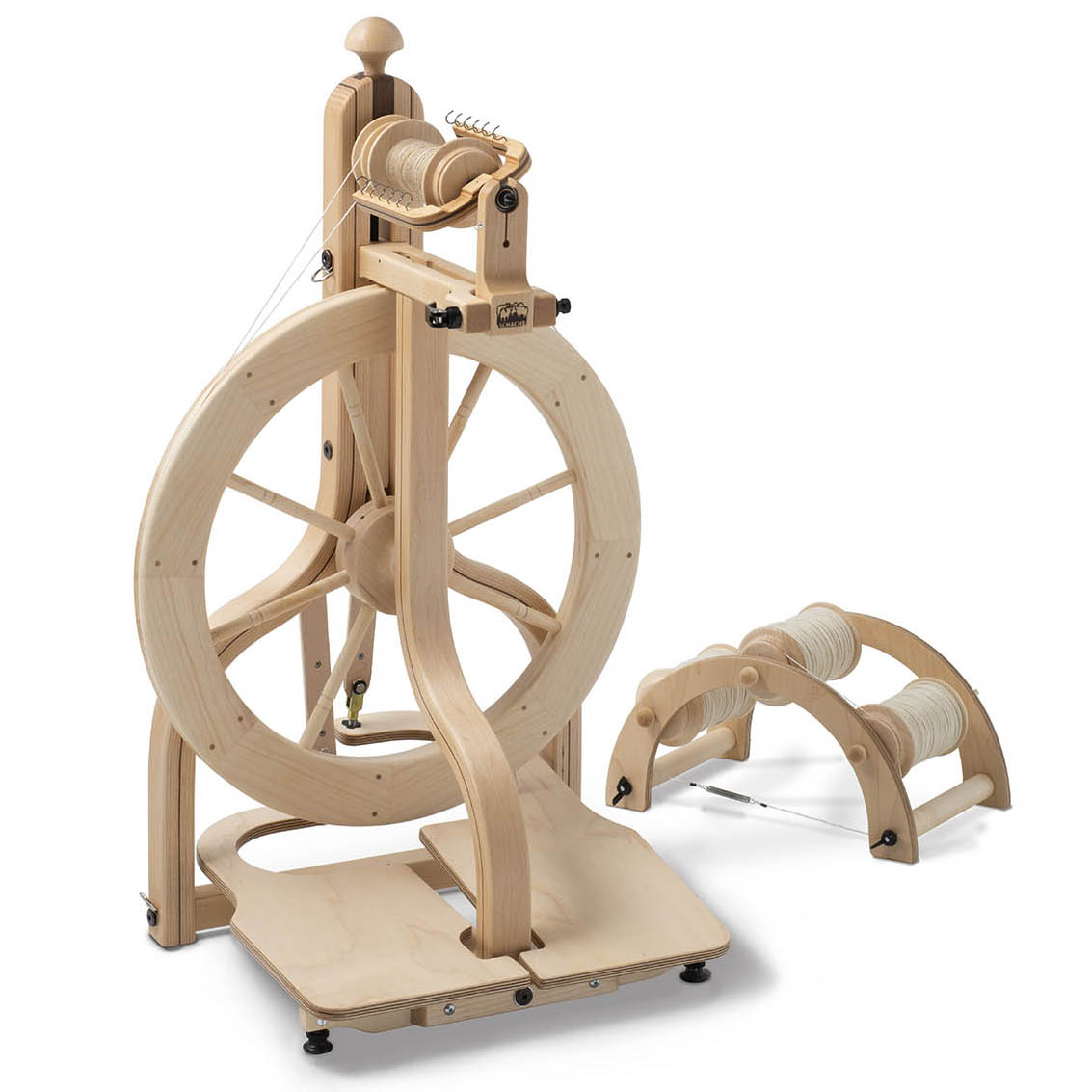
Double-Treadle Matchless with Lazy Kate Loom.
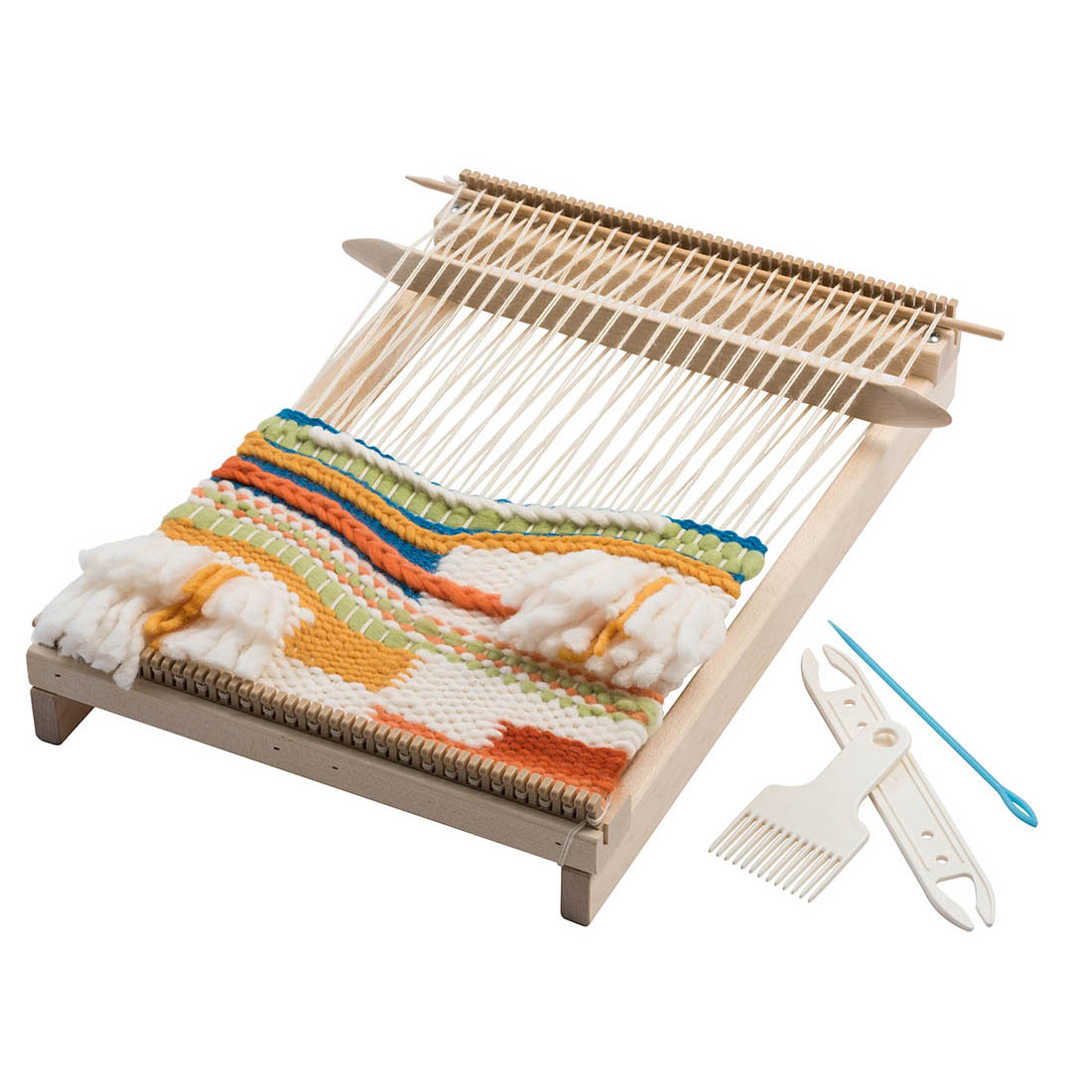
Lilli Loom.
In the last five decades, the company has grown from offering five, hand weaving looms and accessories crafted by small wood shops, to several hundred weaving and spinning products built on Computer Numeric Control woodworking machines – but still sanded and finished painstakingly by hand.
The tools, including the bestselling Baby Wolf loom, introduced in 1984, have become an indispensable part of the craft and the fiber industry.
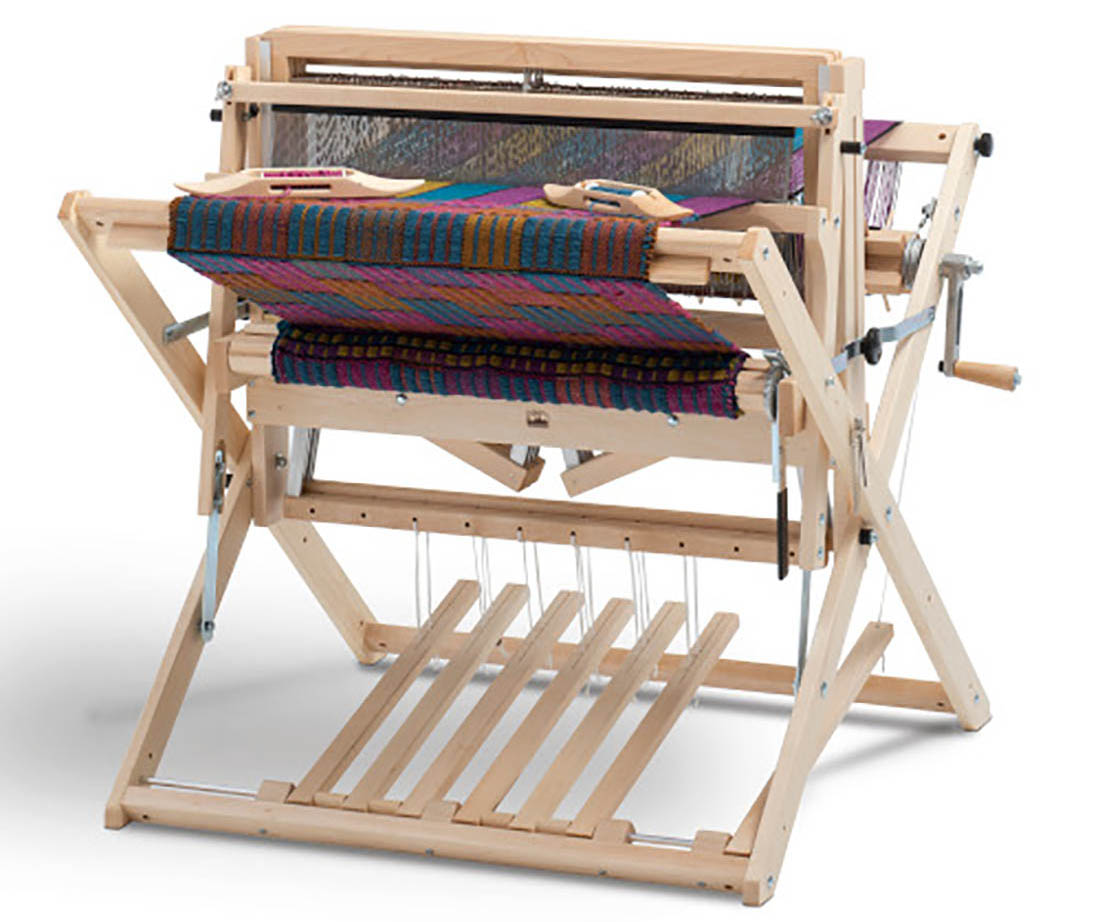
Baby Wolf Floor Loom
Schacht compares the company’s work to sculpting – the main component of the spinning wheel, called the flyer, hasn’t much changed since the 16th century. “Innovation has taken place in the structure of the spinning wheel,” Schacht says. “In a way, it’s almost like sculpture. You’re designing something that’s going to hold that mechanism.”
The 50-person company has also innovated by creating more budget-minded products, like its Ladybug spinning wheel – instead of wood, it uses a nylon bicycle-style wheel – which retails for $736, compared to more than $2,000 for its double treadle Reeves model, to allow for easier entry into the craft.
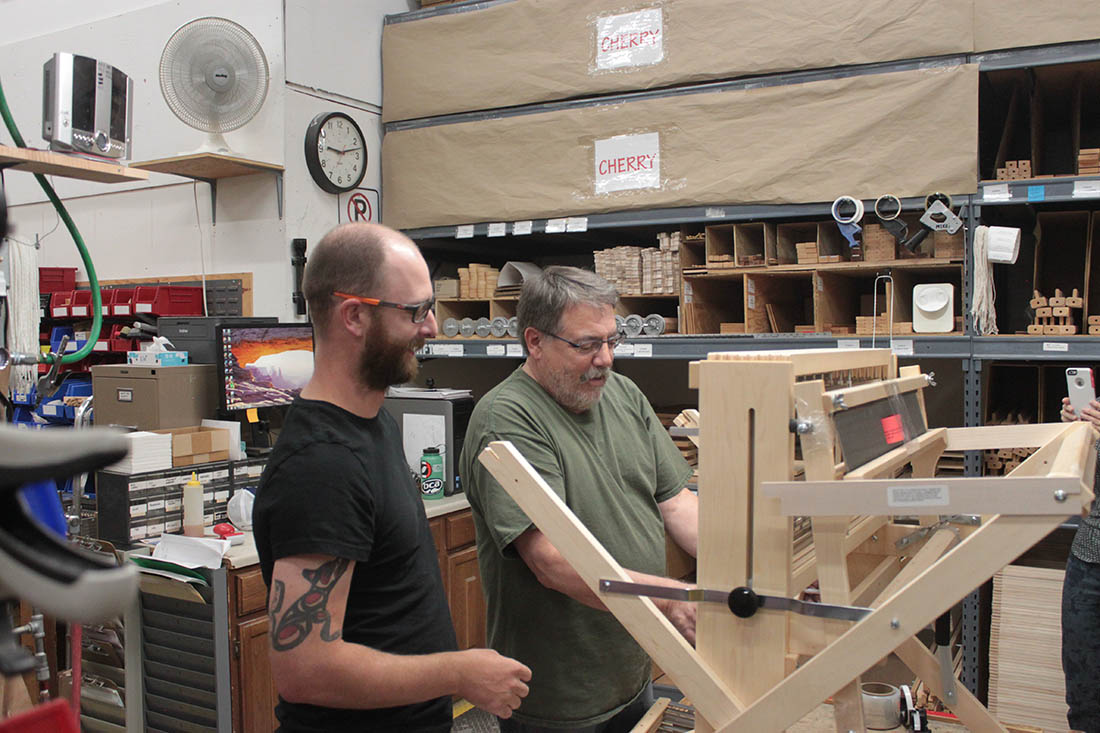
Mike and Troy assemble a Baby Wolf Loom.
The second ‘back-to-the-earth’ movement
The industry is currently experiencing a revival of the maker movement that mirrors the one in the 1960s. Schacht is at the center of that revival, supporting the makers – people just like the members of the Craft Industry Alliance – who are starting businesses within the fiber industry and selling woven products and handspun yarn online.
“Even recessions aren’t recessions for our business,” says Jane Patrick, Schacht’s wife, who runs the business with him. “During a recession, people are seeking something meaningful to do.”
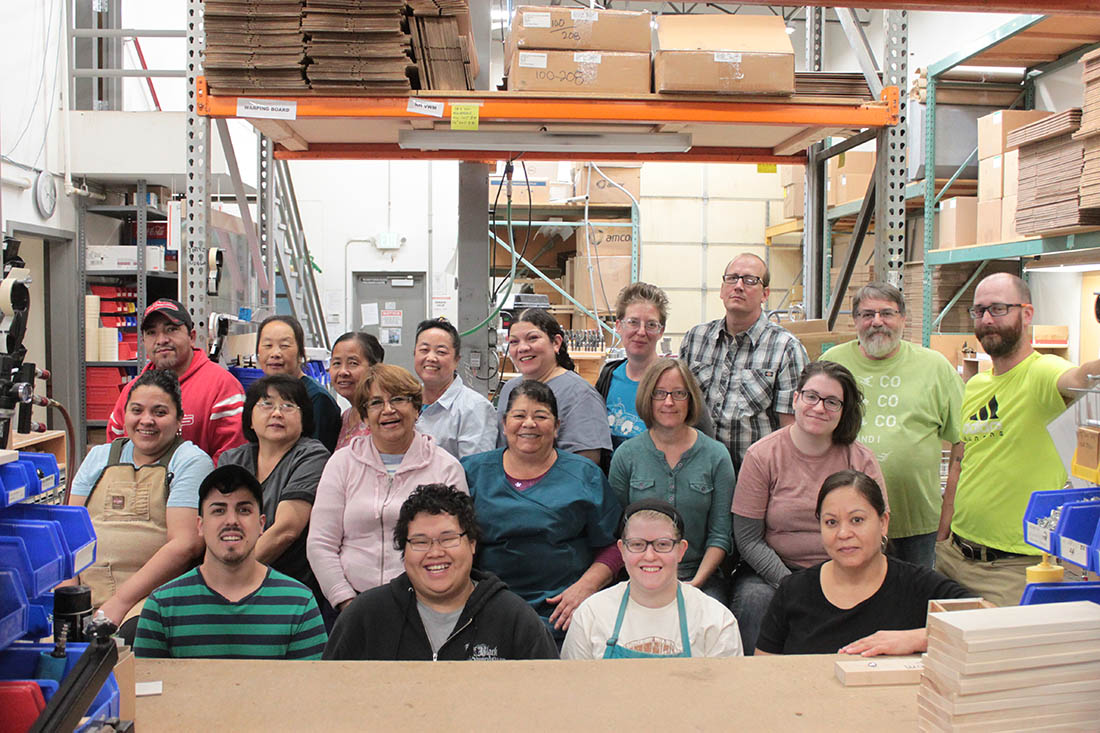
The Schacht assembly crew.
Facing challenges
Like the other small businesses in the industry, the Schacht Spindle Company has had to deal with the challenges of manufacturing moving overseas. The company makes 2,000 parts itself, and another 2,000 metal, leather, and rubber parts, many custom made, are from other manufacturers, the majority of which are small companies.
“It’s been challenging to keep it in the U.S. for 50 years,” Schacht says. “Every week as we’re in touch with some of our suppliers, they are either changing what they’re doing or disappearing.”
Still, the industry remains collaborative.
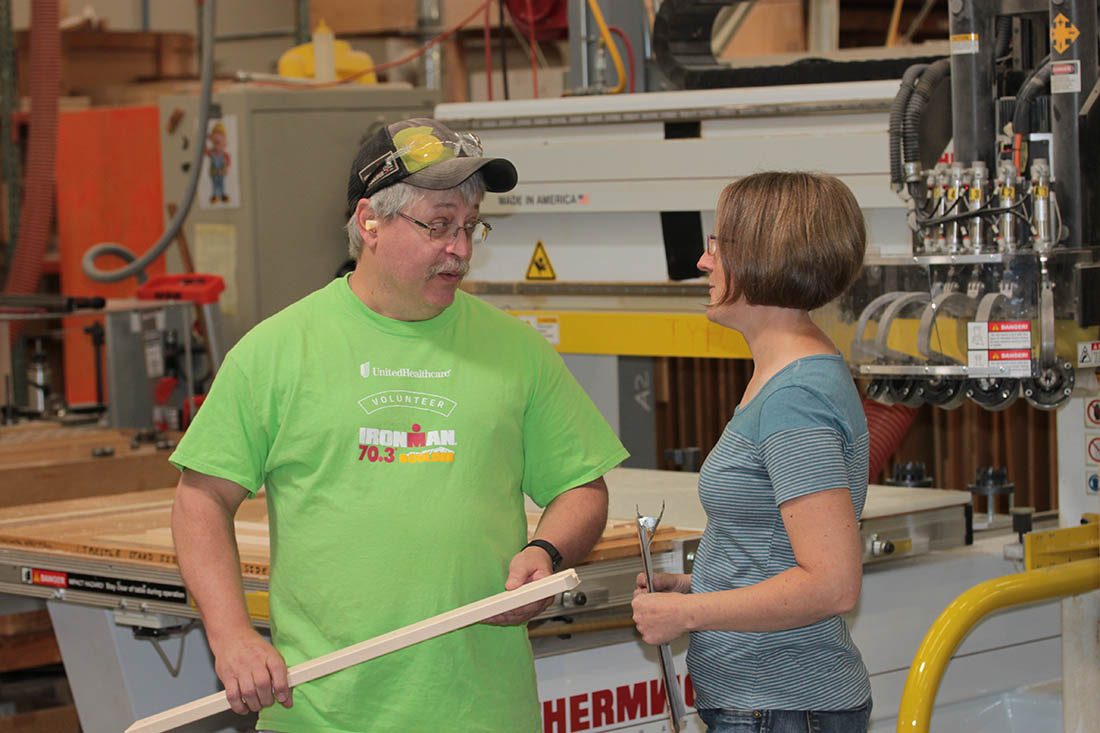
Donna, the Production Manager.

Founders, Barry and Jane Schacht.
“We have had a very open and generous relationship with every other loom and spinning company in the world,” Schacht says. “Almost everyone has visited our factory. That’s the positive about the industry for sure.”
At the same time, Schacht has positioned itself for longevity, creating a management team to plan for the future of the company.
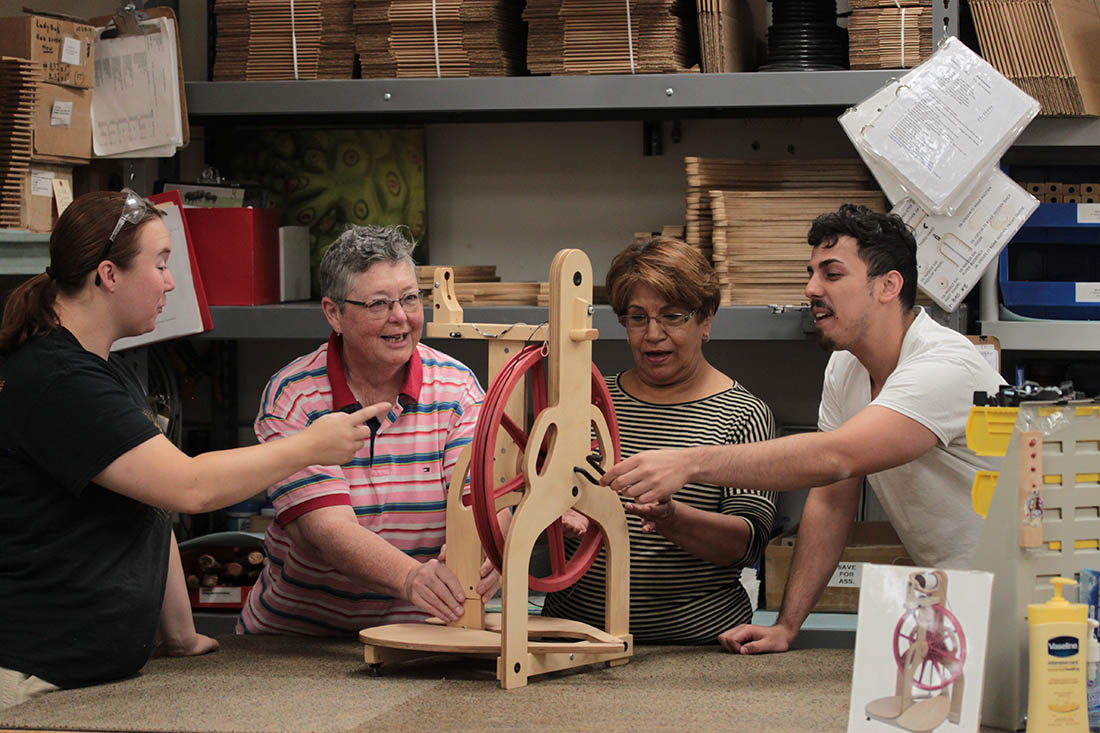
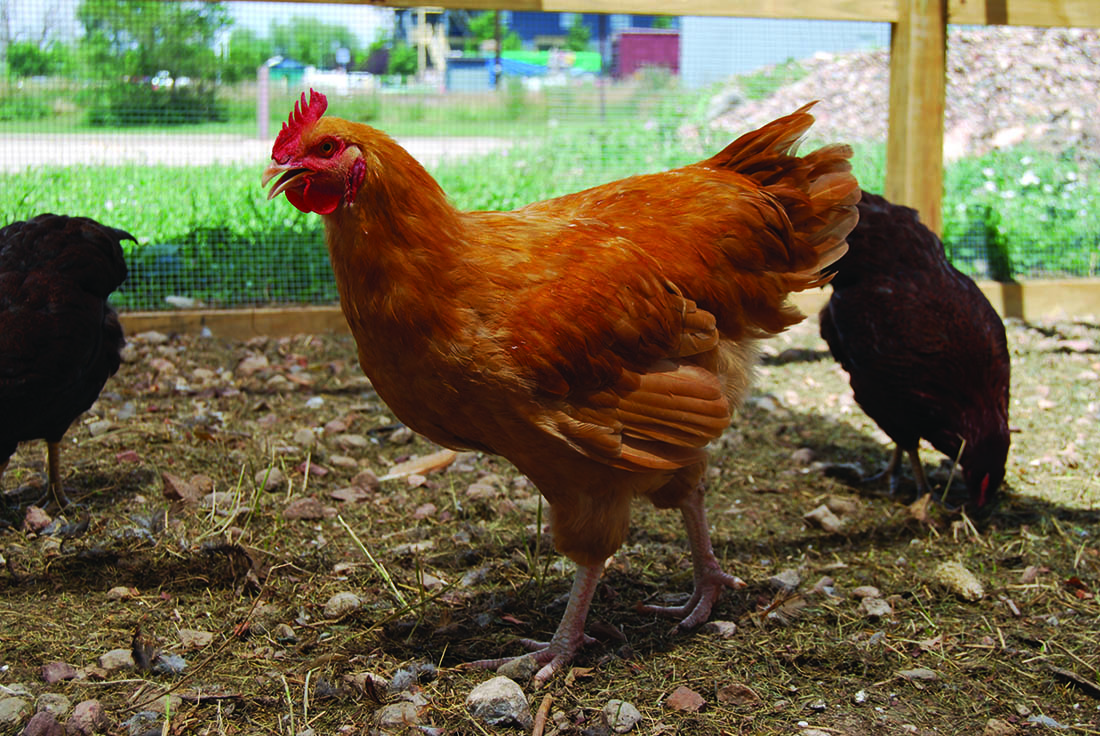
Spinning wheel land and the Schacht chicken!
“We have a mantra here: constant improvement,” Patrick says. “We’re always looking to be better. We’re always upgrading products. Even products that look similar; you can see how we’ve upgraded the product to make it better today.”
Want to learn more about Schacht Spindle? Tune in to our podcast interview with Jane Patrick and Barry Schacht.

Lisa Chamoff
contributor
Lisa is a freelance journalist in the New York Metro area who specializes in home design, real estate and healthcare. When she’s not writing, or knitting shawls and sweaters, Lisa runs Indie Untangled (www.indieuntangled.com), a marketplace and blog that promotes the work of yarn dyers, pattern designers and crafters of knitting-related accessories.

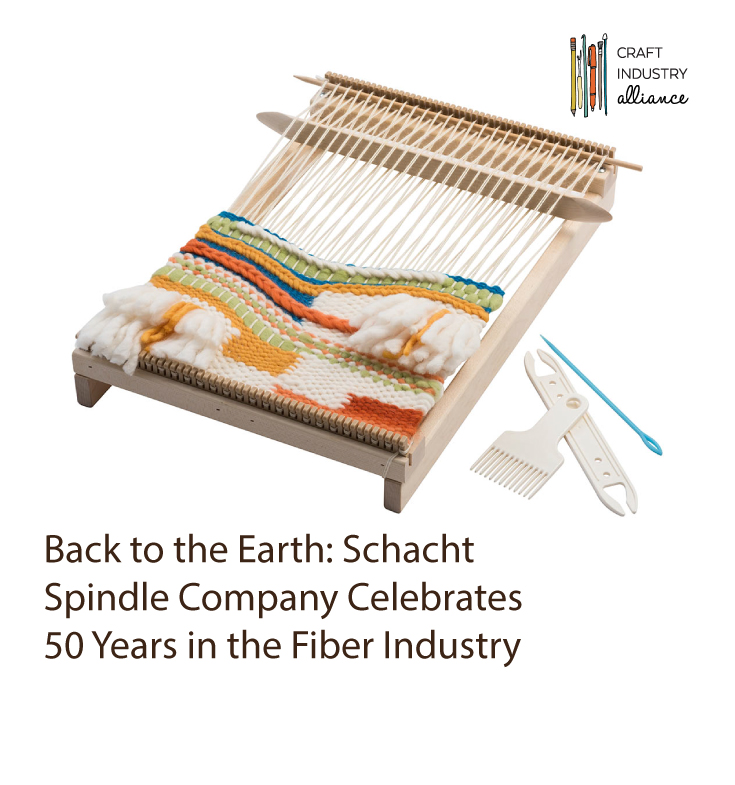
My first loom was a Schacht, I bought it with my student loan… I decided to weave instead of eat. 🙂 Forty years later I still am weaving on it. I don’t even know how much Schacht equipment I have! Happy Birthday to their beautiful work!
I’m so happy to see that Schacht Spindle Company is still here and prospering. Years ago myself and a friend started weaving classes in our Denver Public Schools art classes. Was in Boulder this week for the Sparks concert and thought about the happy trips to Boulder for supplies, and then the ultimate joy of seeing what the students designed…all inspired by your products and support. A very special and creative stage of life made better by visits to Schacht. I eventually moved to California but now back in Denver….Thank you again for your success and inspiration.